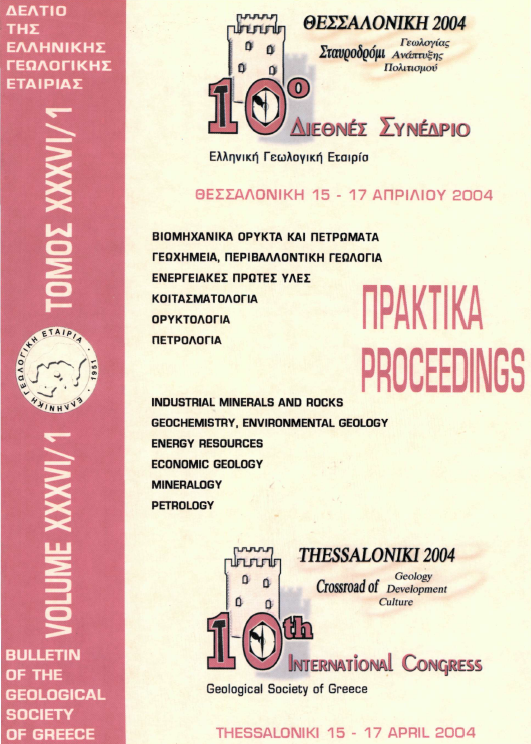ESTIMATION OF THE EFFECT OF PARTINGS TO THE QUALITY OF RECOVERABLE LIGNITE MINED FROM MULTI-LAYERS DEPOSITS
Résumé
The evaluation of multi-layers lignite deposits is mainly based on borehole data. The lack of sufficient number of analytical data of waste and carbonaceous layers, leads to the use of indicative values during the evaluation and consequently affects the estimation precision of recoverable lignite quality. In the present work the possibility of determination of basic quality parameters of waste and carbonaceous layers by using an expert system was investigated. The development of the expert system was based on the available analytical data of waste and carbonaceous layers and the coded descriptions of corresponding cores. The expert system was used for the estimation of quality characteristics of waste and carbonaceous layers from selected core of Southern Field mine of Ptolemais area. The quality characteristics of the estimated recoverable lignite shows a more intense fluctuation compared with this obtained by using indicative values for waste and carbonaceous layers.
Article Details
- Comment citer
-
Γαλετάκης Μ., & Παπανικολάου Κ. (2004). ESTIMATION OF THE EFFECT OF PARTINGS TO THE QUALITY OF RECOVERABLE LIGNITE MINED FROM MULTI-LAYERS DEPOSITS. Bulletin of the Geological Society of Greece, 36(1), 274–282. https://doi.org/10.12681/bgsg.16643
- Rubrique
- Energy Resources

Ce travail est disponible sous licence Creative Commons Attribution - Pas d’Utilisation Commerciale 4.0 International.
Authors who publish with this journal agree to the following terms:
Authors retain copyright and grant the journal right of first publication with the work simultaneously licensed under a Creative Commons Attribution Non-Commercial License that allows others to share the work with an acknowledgement of the work's authorship and initial publication in this journal.
Authors are able to enter into separate, additional contractual arrangements for the non-exclusive distribution of the journal's published version of the work (e.g. post it to an institutional repository or publish it in a book), with an acknowledgement of its initial publication in this journal. Authors are permitted and encouraged to post their work online (preferably in institutional repositories or on their website) prior to and during the submission process, as it can lead to productive exchanges, as well as earlier and greater citation of published work.



